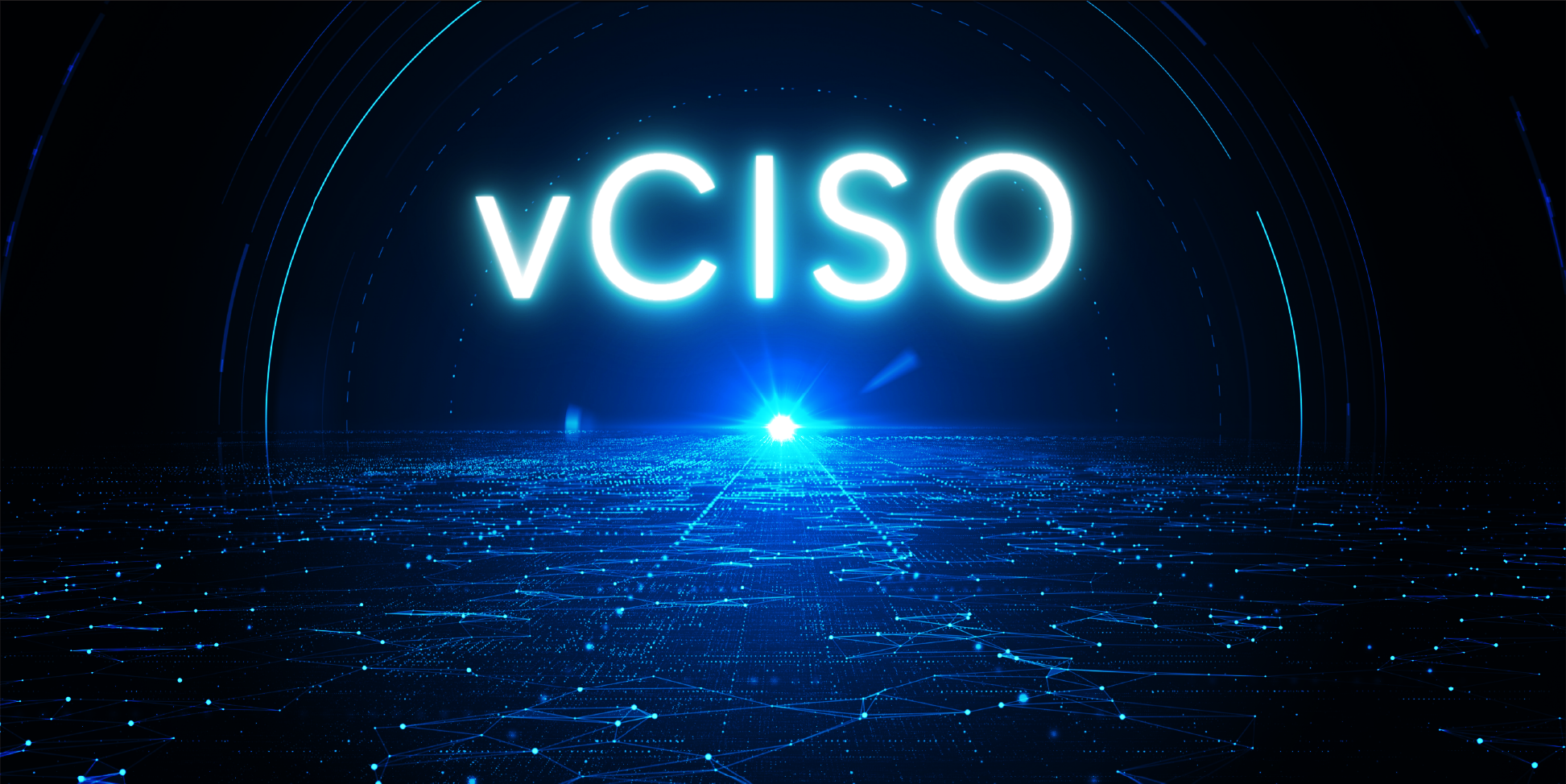In today’s increasingly digital world, cybersecurity is more crucial than ever. With cyber threats evolving rapidly, businesses need expert leadership to manage risks and protect sensitive information. This is where a Virtual Chief Information Security Officer (VCISO) comes into play. A VCISO provides strategic cybersecurity leadership, often as an external service, making it an ideal solution for companies that can’t afford or don’t need a full-time CISO. But what exactly does a VCISO do, and why is it important? Let’s explore the role of a VCISO and how it can benefit your business.
Introduction to VCISO
What is a VCISO?
A Virtual Chief Information Security Officer (VCISO) is an external cybersecurity expert who works on a part-time or contract basis. Unlike a traditional CISO, a VCISO doesn’t require a permanent, full-time position within the company. Instead, they bring their expertise to organizations in need of high-level cybersecurity strategy and leadership without the associated costs of a full-time executive. The VCISO typically advises and helps manage a company’s cybersecurity risks, compliance needs, and strategic direction to protect it from growing cyber threats.
Why is a VCISO Important in Today’s Digital Landscape?
As businesses rely more heavily on digital systems, they are increasingly at risk of cyberattacks. Data breaches, ransomware, and other threats can cause significant financial, reputational, and operational damage. A VCISO helps mitigate these risks by ensuring that businesses have robust security policies and frameworks in place. Whether a company is small or large, having an experienced VCISO can make a difference in safeguarding valuable assets and maintaining customer trust. Moreover, in industries that require strict compliance with regulations, the VCISO can guide the organization through complex cybersecurity requirements to avoid penalties.
Brief Overview of the Role of a VCISO in Cybersecurity
The role of a VCISO involves overseeing all aspects of a company’s cybersecurity strategy. This includes risk management, incident response, regulatory compliance, and employee training. The VCISO works closely with senior leadership to align cybersecurity initiatives with business objectives. They assess potential vulnerabilities, design security frameworks, and ensure that all systems and data are adequately protected. While the VCISO is not involved in day-to-day operations, their role is critical in shaping the cybersecurity culture and strategy of the organization.
Key Responsibilities of a VCISO
Strategic Cybersecurity Leadership
One of the core responsibilities of a VCISO is to provide strategic direction and leadership for the organization’s cybersecurity efforts. They assess the current security posture, identify gaps, and create a roadmap for improvement. This might involve setting up security frameworks, choosing the right technologies, and defining policies that align with industry standards and regulations. A VCISO ensures that cybersecurity is integrated into the broader business strategy, helping the organization manage risk and stay ahead of emerging threats.
Risk Management and Compliance Oversight
A VCISO is instrumental in managing cyber risk across the organization. They identify potential threats and vulnerabilities, conduct risk assessments, and implement mitigation strategies. Furthermore, they oversee compliance with industry regulations such as GDPR, HIPAA, or PCI DSS, ensuring that the organization adheres to legal requirements. A VCISO also prepares for audits and helps ensure that cybersecurity practices are aligned with best practices, which are essential for avoiding fines or reputational damage due to non-compliance.
Incident Response Planning
While prevention is crucial, it’s equally important to be prepared in case of a cyberattack. A VCISO is responsible for creating and managing the organization’s incident response plan. This includes defining roles, procedures, and communication strategies for when an attack occurs. The VCISO leads efforts to minimize damage, recover systems, and ensure business continuity during a cybersecurity incident. A well-prepared incident response plan can make a significant difference in how quickly an organization can recover from a breach or attack.
Employee Training and Awareness
Human error is one of the leading causes of cybersecurity breaches, which is why employee training is vital. A VCISO helps develop training programs and security awareness campaigns to educate employees on cybersecurity best practices. This includes topics such as phishing attacks, password management, and recognizing suspicious activity. By creating a security-conscious culture, the VCISO ensures that employees are not only aware of the risks but also equipped to mitigate them.
Vendor and Third-Party Management
In today’s interconnected world, businesses often rely on third-party vendors for services, which introduces additional risks. A VCISO is responsible for evaluating the cybersecurity posture of these vendors and ensuring they meet the organization’s security standards. This includes reviewing contracts, conducting security audits, and managing any risks associated with third-party relationships. A well-managed vendor security program is essential for reducing the risk of breaches through external partners.
Why Businesses Choose a VCISO
Cost-Effective Solution for Small and Medium-Sized Businesses
One of the primary reasons businesses opt for a VCISO is the cost savings. Hiring a full-time CISO can be expensive, especially for small and medium-sized businesses (SMBs). A VCISO provides the same level of expertise and leadership but on a more flexible and affordable basis. This makes it an ideal solution for SMBs that need cybersecurity leadership but can’t afford a full-time executive.
Flexibility and Scalability for Growing Companies
As a business grows, its cybersecurity needs also evolve. A VCISO offers flexibility by adapting to the changing needs of the company. Whether it’s scaling the security infrastructure, managing new risks, or expanding into new markets, the VCISO can adjust the security strategy accordingly. This scalability ensures that businesses can stay secure as they grow without having to hire additional internal resources.
Access to Expertise Without a Full-Time Hire
A VCISO brings specialized knowledge and experience that many businesses might not have in-house. By hiring a VCISO, organizations can tap into the expertise of seasoned cybersecurity professionals without the long-term commitment of a full-time hire. This is especially beneficial for businesses that face complex cybersecurity challenges but don’t have the resources to build an internal security team.
Providing Leadership in the Absence of an Internal CISO
For companies that lack an internal CISO, a VCISO fills a vital leadership gap. They provide strategic oversight, guidance, and direction to ensure the organization’s cybersecurity efforts are effective and aligned with business goals. Even if a business is not ready to hire a permanent CISO, a VCISO can help fill that role temporarily, ensuring continuity and security.
The Benefits of Hiring a VCISO
Enhanced Security Posture and Risk Mitigation
One of the key benefits of hiring a VCISO is the enhancement of a company’s security posture. With their expertise, a VCISO can identify and address vulnerabilities before they are exploited. They implement comprehensive risk management strategies, helping the organization avoid costly breaches and data losses. A well-executed cybersecurity strategy can make a significant difference in a company’s ability to defend against cyberattacks.
Compliance with Industry Regulations and Standards
The increasing complexity of regulatory requirements can be overwhelming for businesses. A VCISO ensures that a company meets compliance standards such as GDPR, HIPAA, and other industry-specific regulations. By overseeing compliance efforts, the VCISO reduces the risk of legal penalties and reputational damage, keeping the company on the right side of the law while maintaining a strong security framework.
Expertise in Tackling Complex Cybersecurity Challenges
Cyber threats are constantly evolving, and businesses need to stay ahead of the curve. A VCISO brings the necessary expertise to tackle complex cybersecurity challenges, from advanced persistent threats (APTs) to sophisticated phishing campaigns. With the experience and knowledge to recognize and mitigate these challenges, a VCISO plays a crucial role in defending against today’s cyber risks.
Continuous Monitoring and Proactive Defense Measures
Cybersecurity is an ongoing effort that requires constant vigilance. A VCISO ensures continuous monitoring of security systems and data, proactively identifying threats and addressing them before they escalate. By staying on top of the latest threats and security trends, a VCISO can maintain a proactive defense that minimizes the chances of a successful attack.
How to Choose the Right VCISO for Your Business
Key Skills and Qualifications to Look For
When choosing a VCISO, businesses should prioritize candidates with extensive experience in cybersecurity management, risk assessment, and incident response. A strong background in industry standards and certifications such as CISSP, CISM, or CISA is essential. Additionally, look for a VCISO who has experience in your industry, as they will be better equipped to understand specific challenges and compliance requirements.
Experience in Specific Industries or Sectors
Cybersecurity needs can vary greatly depending on the industry. For example, financial services and healthcare have strict regulations, while tech companies may face different threats. Choose a VCISO with a proven track record in your specific sector to ensure they can tailor their strategies to meet the unique needs of your business.
The Importance of Communication and Collaboration
Effective communication is key when working with a VCISO. Ensure that the candidate has strong communication skills and can collaborate with other team members. The VCISO should be able to explain complex cybersecurity concepts in simple terms and work closely with executives, IT staff, and other stakeholders to develop and implement security strategies.
How to Assess the Effectiveness of a VCISO Partnership
To measure the success of a VCISO, businesses should look at key performance indicators such as improved security posture, reduced incidents, and successful compliance audits. Regular check-ins and reports from the VCISO can help businesses assess the ongoing value of the partnership and ensure that the company’s cybersecurity goals are being met.
Challenges in Working with a VCISO
Overcoming Potential Communication Gaps
Working with an external VCISO can sometimes lead to communication gaps. It’s essential to establish clear lines of communication and expectations from the start. Regular meetings and transparent reporting will help ensure that the VCISO stays aligned with the company’s goals and objectives.
Balancing Strategic Direction with Hands-On Execution
While a VCISO provides strategic leadership, they may not be involved in day-to-day execution. Balancing the strategic vision with practical, hands-on implementation can be a challenge. Clear roles and responsibilities, along with regular check-ins, can help manage this dynamic effectively.
Aligning the VCISO’s Role with Business Goals and Needs
To get the most value from a VCISO, businesses must ensure that their cybersecurity goals align with the company’s overall business strategy. This requires collaboration between the VCISO and the company’s leadership to ensure that security efforts support long-term business objectives.
The Future of VCISO in Cybersecurity
Trends Shaping the Role of VCISOs
The demand for VCISOs is growing as businesses increasingly recognize the need for expert cybersecurity leadership. Emerging technologies like artificial intelligence and machine learning will continue to shape the cybersecurity landscape, requiring VCISOs to stay ahead of these trends.
The Growing Demand for Virtual Cybersecurity Leadership
As more businesses adopt digital solutions, the need for cybersecurity leadership will continue to rise. The flexibility, cost-effectiveness, and expertise offered by a VCISO make it an attractive option for companies seeking robust security without the commitment of a full-time hire.
How Businesses Can Adapt to New Cybersecurity Challenges with a VCISO
As cyber threats evolve, businesses need to adapt. A VCISO can help organizations stay agile and responsive to emerging risks, implementing strategies that ensure ongoing protection and resilience in the face of new challenges.
Conclusion
In conclusion, a VCISO offers valuable expertise and strategic leadership to businesses looking to improve their cybersecurity efforts. Whether you’re a small startup or a large corporation, the flexibility and cost-effectiveness of a VCISO make it a practical solution for tackling the growing threat of cyberattacks. By hiring the right VCISO, businesses can strengthen their security posture, ensure regulatory compliance, and stay ahead of the curve in the fast-paced world of cybersecurity.











